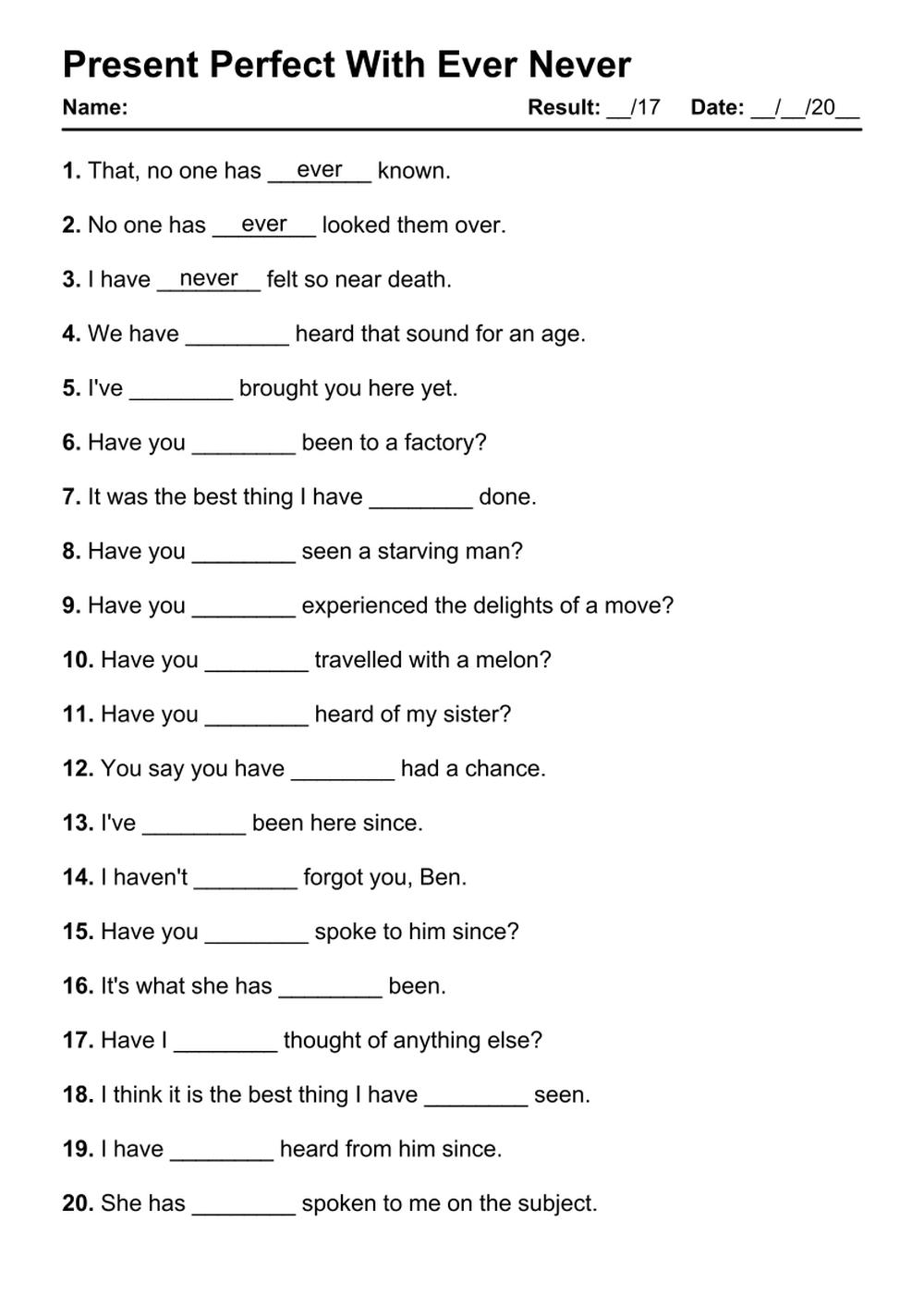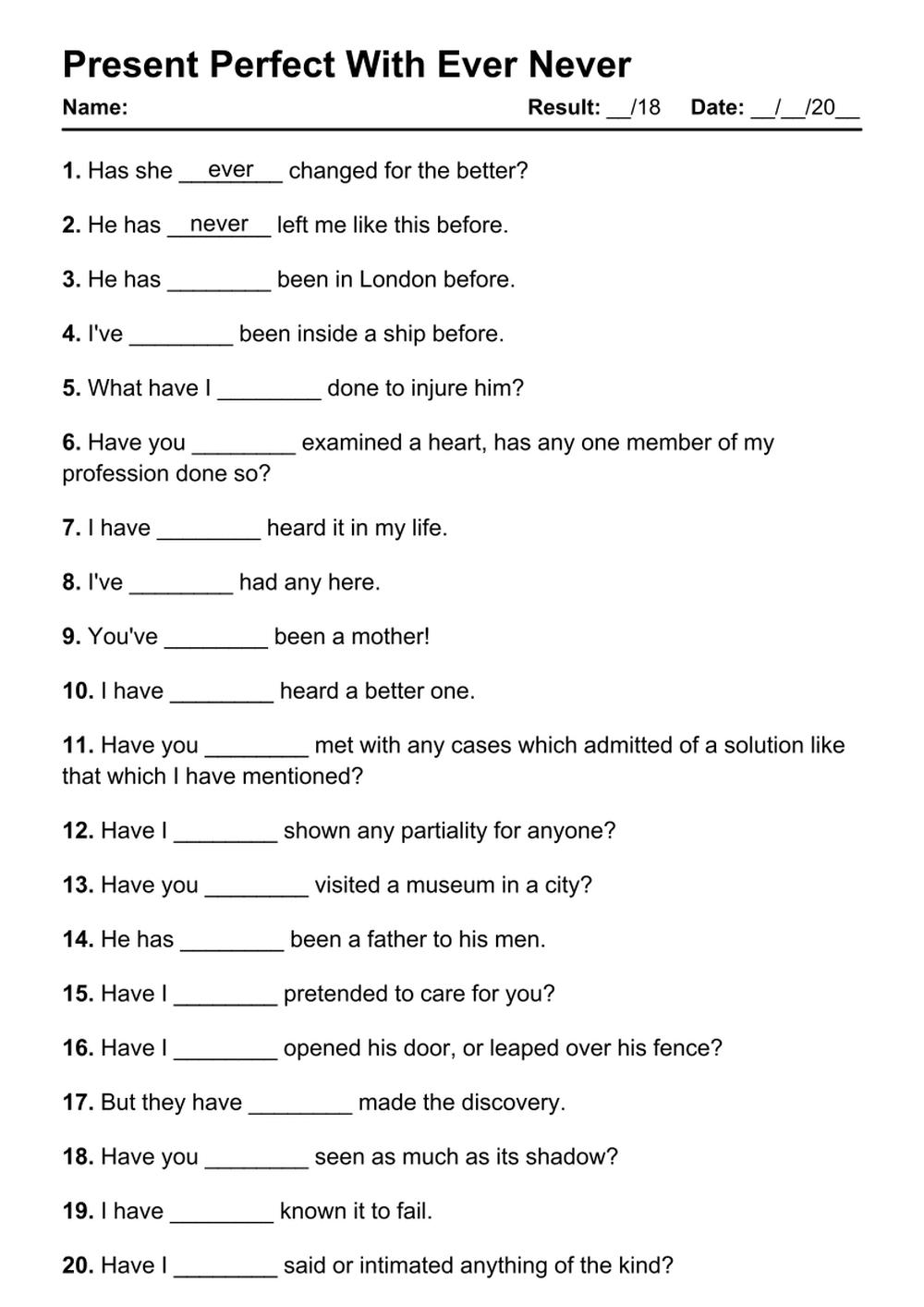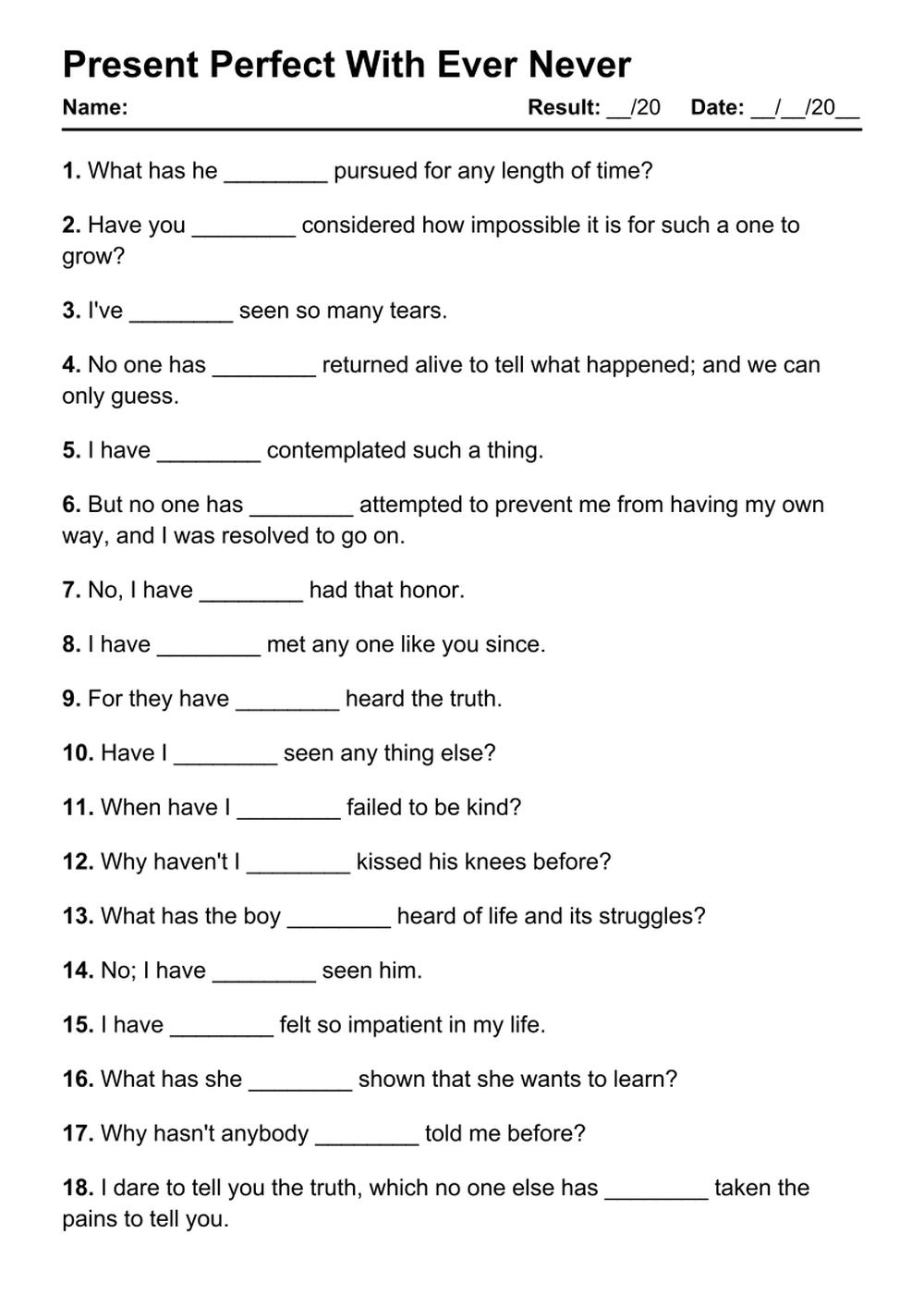Printable Present Perfect With Ever Never Exercises - 45 PDF Worksheets with Answers













































Present Perfect Simple Tense With Ever Never Printable PDF Worksheet Tests with Exercises and Answers
Access a collection of 45 printable PDF worksheets focusing on the English grammar topic of the present perfect with ever never. Download fill-in-the-blank tests with exercises and answer keys for present perfect simple tense with ever never to print for free. The activities in the sheets are suitable for kids, adults, ESL learners at the beginner, elementary, and intermediate levels to practice English grammar.

 Bundle
Bundle Worksheet
Worksheet
 Save
Save